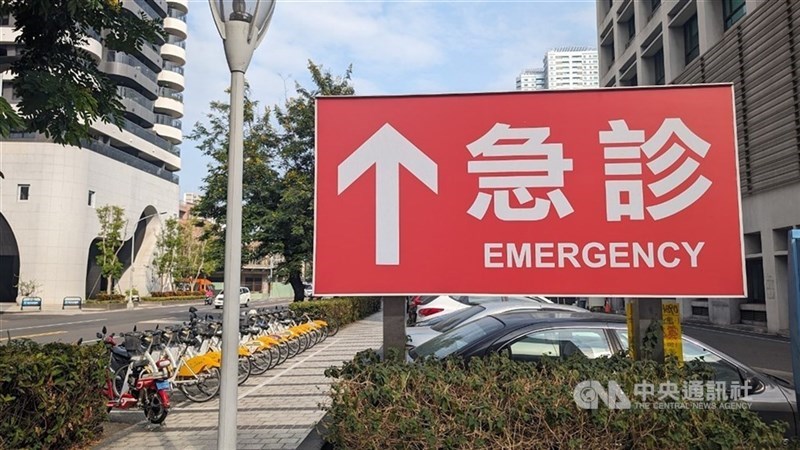
Taipei, Feb. 25 (CNA) A doctors' union has said alternatives to "ineffective" systems must be found if government measures to solve Taiwan's ongoing emergency room crisis are to succeed.
On Monday, Health Minister Chiu Tai-yuan (邱泰源) said the Ministry of Health and Welfare (MOHW) had instructed medical centers to improve inpatient bed allocation and strengthen coordination among regional hospitals to alleviate severe ER overcrowding.
However, the Taipei Doctors Union said in a statement that if the MOHW "intends to intervene, it must find an alternative solution beyond the [current] ineffective inter-hospital coordination mechanism."
The union said bed coordination still primarily relies on phone calls, with hospital staff lacking reliable access to real-time information on bed availability across different hospitals.
When a patient cannot be transferred due to a lack of beds, hospitals typically explain to the regional Emergency Operation Center run by MOHW that no beds are available, which "often results in no further action," the union said.
Moreover, the union said, ER overcrowding is exacerbated by hospitals reserving a certain percentage of beds for patients receiving nonemergency treatments because they are more cost-effective.
Without compensatory financial incentives, hospitals will continue prioritizing such patients at the expense of those waiting in the ER, the union added.
The union also highlighted Taiwan's shortage of nurses and adjustments to the National Health Insurance (NHI) payment system.
"We hope the government not only communicates [with stakeholders] but also takes decisive action," the union said.
Meanwhile, Hung Tzu-jen (洪子仁), president of the Taiwan College of Healthcare Executives, a nonprofit promoting health care administration education, said implementing the MOHW's measures would be challenging, as many patients prefer large hospitals or those they regularly visit.
According to Hung, hospitals cannot enforce transfers and the referral system in Taiwan remains weak.
"In an aging society, even an unlimited number of National Taiwan University Hospital [one of Taiwan's leading medical centers] wouldn't be enough to accommodate every patient seeking emergency treatment in a short time," Hung said.
On Feb. 22, the Taiwan Society of Emergency Medicine warned that "unprecedented" overcrowding at ERs could lead to a mass exodus of health care workers.
According to MOHW figures, 10 large hospitals in Taiwan had between 60 and 123 patients waiting to be hospitalized as of 2:30 p.m. on Monday.
- Society
Taiwan headline news
08/01/2025 01:26 PM - Society
Mother of abused infant arrested, ordered detained over separate crime
08/01/2025 12:59 PM - Business
U.S.-imposed 20% tariff is 'not the worst': Scholar
08/01/2025 12:20 PM - Business
Cabinet says 20% tariff not final, talks with U.S. will continue
08/01/2025 11:12 AM - Society
Heavy rain advisory issued for central, southern Taiwan: CWA
08/01/2025 10:36 AM